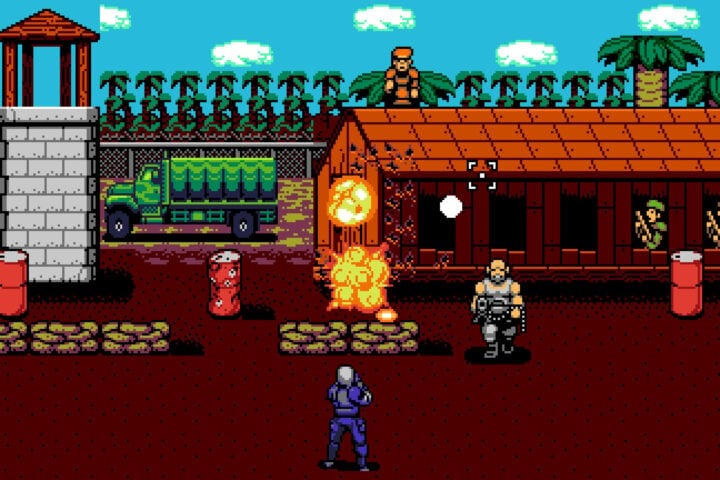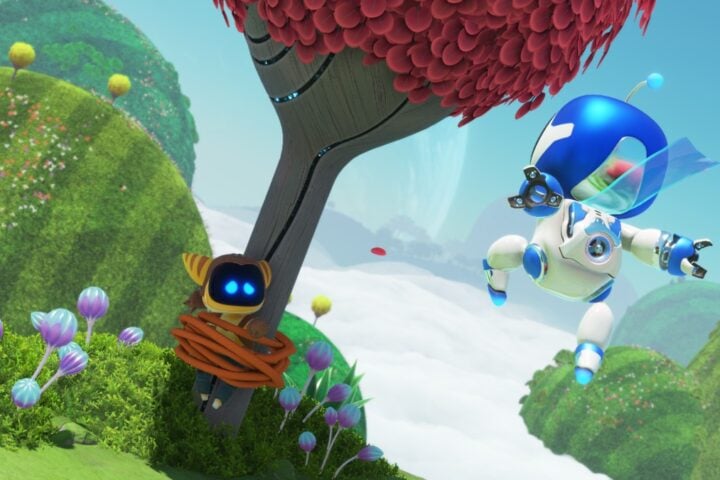Every time you boot up Talha & Jack Co’s Judero, the title screen reminds you of its handcrafted nature, with live-action footage of the retrofitted action figure that serves as the game’s title character and the player’s stop-motion avatar. Shirtless, red-bearded, and wielding a staff, Judero is a Celtic warrior who journeys across a fantasy conception of the Scottish Borders. For good measure, each time Judero encounters a monster for the first time, a brief animated video plays by way of introduction. The first, a sort of doughball caterpillar with a grotesque human face, summons clay coils of letters to spell out the creature’s name: haggis.
Jack King-Spooner has been putting out idiosyncratic collage games for years—many of them, like Beeswing, able to be finished in a single sitting. Judero, though, is his biggest and most ambitious effort yet, made in conjunction with developer Talha Kaya. Featuring seamless changes of camera perspective and an action-oriented combat system, the game at first appears relatively straightforward. Judero goes into town, receives a quest, and ventures out into the cobweb-laden forest to rescue a child. There are whispers of monsters and a witch menacing the townsfolk. But while Judero does indeed spend much of his time bludgeoning hostile critters with his staff, the game takes a much more harmonious stance than similar RPG fare.
For one, the boss encounters here tend to reveal some deeper motivation or desire for reconciliation on the part of Judero’s opponent, and various creatures can be possessed to make use of their abilities. A fire sprite can burn away the brush obstructing paths or hiding treasure chests, while the spitting haggis can hit objects from a distance.
The game supplies players with a steady stream of new creatures, hazards, and abilities all the way to the final sequence, enlivening simple puzzles and combat maneuvers that might easily have outstayed their welcome. Across Judero’s approximately six-hour playtime, the mechanics never grow truly complex, but they don’t need to really, as they serve their purpose as varied, engaging connective tissue between thoughtful writing and visual ingenuity.
The setting’s humble RPG trappings give way to much stranger environs, and by the time Judero is hallucinating a red ape companion on a raft in a vast, open-ended ocean, we’re deep in the wilds of King-Spooner’s imagination. Yet between cheeky anachronisms and bonus “levels” with joke reward screens, Judero is awash in surprisingly profound moments. Many of them are no more than simple exchanges between yourself and the world’s odd-looking denizens. Indeed, it’d be a huge disservice to play this game and blow past its NPCs, as those that don’t have in-depth stories to tell are prone to philosophical ruminations or laments on lost loved ones.
Judero is an earnest, often quite beautiful treatise on what humanity creates to understand the world—on the stories that emerge from lives lived and hardships endured. In that regard, the game’s focus on Scottish folklore and on storytelling in general comes to feel like an expression of the game’s art, with its DIY qualities vital to its themes: fingerprints on clay, hand-drawn pages, characters represented as watercolor cut-outs, and a soundtrack emphasizing vocals.
The sharp, imperfect edges of that art become vital, rejecting the seamlessness of higher-budgeted works that obscures the effort that went into their creation. As stop-motion is a jerky and imperfect approximation of motion that’s nevertheless bursting with character, everything about Judero’s construction is nothing short of evidence of its humanity.
This game was reviewed with a key provided by Jack King-Spooner.
Since 2001, we've brought you uncompromising, candid takes on the world of film, music, television, video games, theater, and more. Independently owned and operated publications like Slant have been hit hard in recent years, but we’re committed to keeping our content free and accessible—meaning no paywalls or fees.
If you like what we do, please consider subscribing to our Patreon or making a donation.



